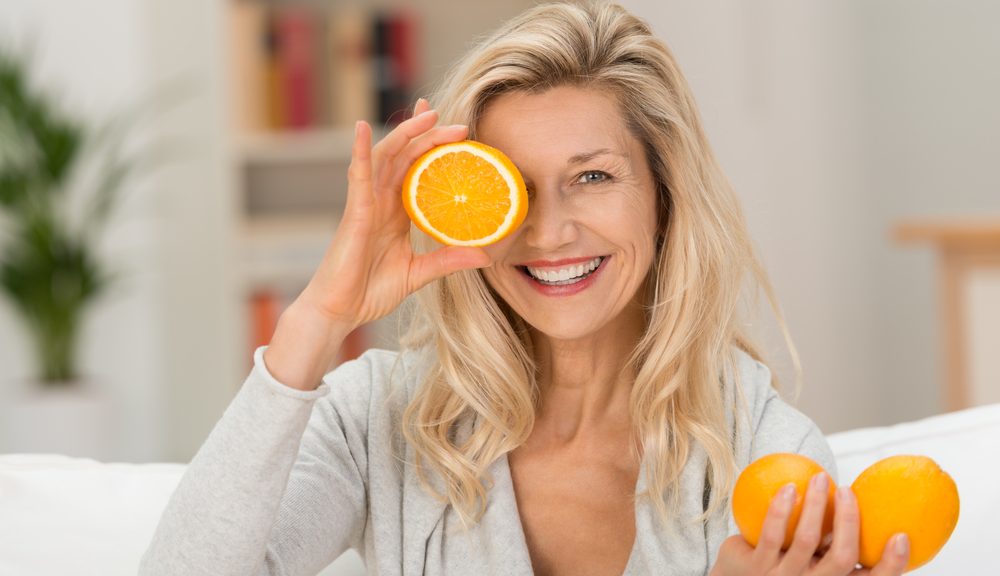
Supplements for Healthy Eyes
By medical nutritionist Dr Sarah Brewer, an expert in food, herbs and supplements
Sight is one of our most important senses, but it is easy to take it for granted until vision starts to go wrong. And it will. As we get older, eyesight invariably starts to fail as the long-sightedness of presbyopia sets in. Other eye conditions also become more common with increasing age, such as cataracts, glaucoma, macular degeneration and eye conditions associated with other health issues, such as high blood pressure or diabetes.
A nutrient-rich diet is important for eye health and a number of supplements have been shown to help ward off some causes of deteriorating vision with increasing age.
Lutein and Zeaxanthin are yellow pigments found in orange, yellow, red and dark green fruit and vegetables. Lutein is also found in egg yolk, contributing to its rich yellow-orange colour. Lutein cannot be made in the body and must therefore come from the diet, but zeaxanthin can be made in small quantities as long as lutein intakes are good. Research shows that taking 10mg lutein daily for a year can increase macular pigment density by 50% and supplements that include lutein and zeaxanthin are often recommended by ophthalmologists to help prevent or treat age-related macular degeneration (AMD). High intakes of lutein and zeaxanthin may also decrease the risk of cataracts.
Omega-3 fish oils provide essential building blocks (DHA and EPA) needed for optimum visual perception in the retina and brain. Fish oil supplements are also used in the treatment of AMD. The UK Food Standards Agency (FSA) currently recommends that we obtain the equivalent of 450mg long-chain omega 3 fish oils (DHA and EPA) per day. If you don’t eat oily fish once or twice a week, a supplement is a good idea.
Antioxidants help to protect the eyes from the damaging effects of light, which generates free radicals when it strikes the retina. People with the highest dietary intakes of antioxidants (vitamins C, E, selenium and carotenoids) are less likely to develop cataracts than those with low intakes. A 10 year study involving over 50,000 nurses found that those whose diet was rich in spinach and carrots, or who took vitamin C supplements for ten or more years, had up to a 45% lower risk of cataracts than women whose antioxidant intake was poor (ie ate little fruit and vegetables or took no supplements).
Sea buckthorn oil is a traditional oral treatment for dry eyes. Its combination of omega-7 fatty acids and antioxidants appear to improve the function of meibomian gland cells that secrete oil into the tears. Taking sea buckthorn oil supplements for three months can relieve eye redness and burning. As a bonus, the oil is also a good source of plant sterols which help to lower cholesterol levels.
Bilberry extracts are traditionally used to help many eye disorders including macular degeneration, cataracts, night-blindness, glaucoma and diabetic retinopathy. In studies involving people with retinopathy, almost 80% of those taking bilberry supplements showed improvement in visible retinal abnormalities on ophthalmologic examination, compared with none of those taking placebo.
Pine Bark extracts (Pycnogenol) are also used to help to strengthen blood vessels in the eye and have been shown to improve retinal eye conditions.
Have your eyes tested regularly – at least once a year over the age of 40.
A bout Dr Sarah Brewer
bout Dr Sarah Brewer
Dr Sarah Brewer is a medical nutritionist and an expert in food, herbs and supplements. She qualified from Cambridge University with degrees in natural sciences, medicine and surgery. After working in general practice, she gained a master’s degree in nutritional medicine. Sarah is a licensed medical doctor, a registered nutritionist and a registered nutritional therapist.
Subscribe to her newsletter to get a FREE 46-page PDF Do You Need A MultiVitamin? at nutritionupdates.subscribemenow.com.
For more information on diet and supplements, visit Dr Sarah Brewer’s Nutritional Medicine website at www.DrSarahBrewer.com and follow her on Twitter.